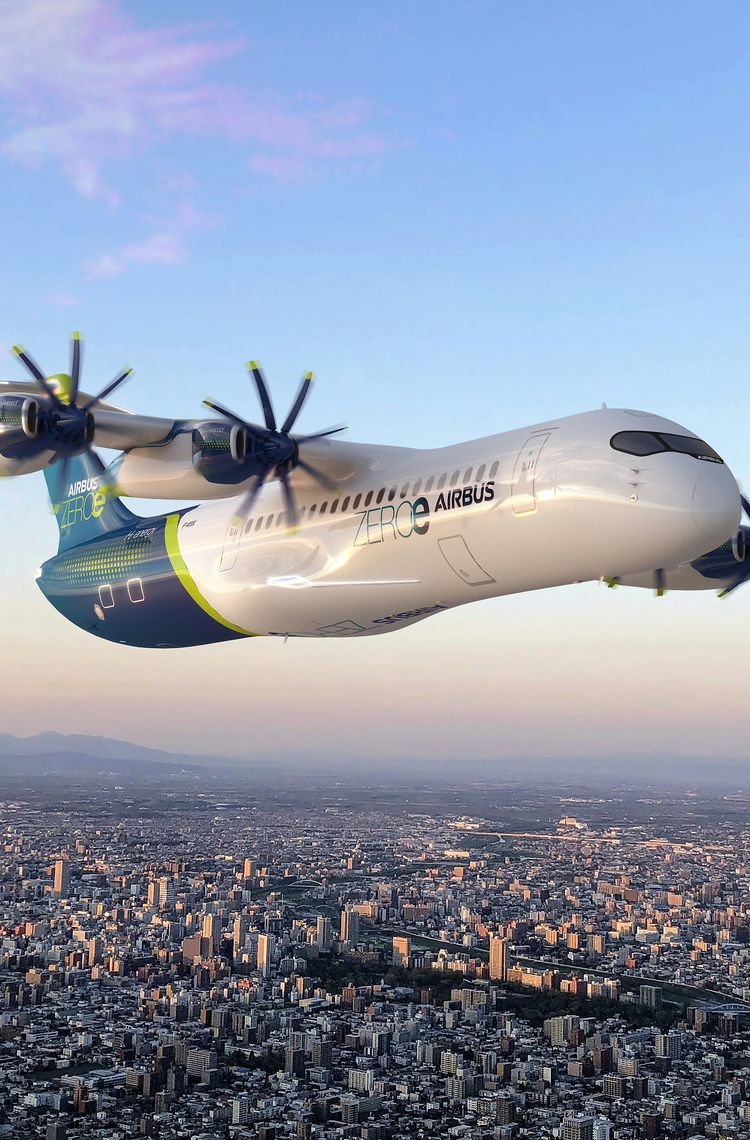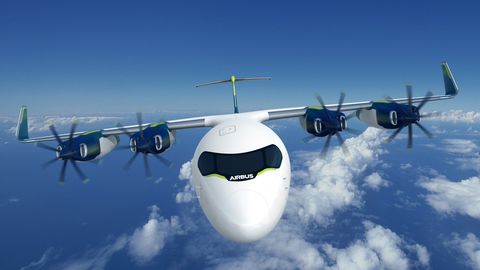The next frontier in aviation
HYDROGEN PROPULSION
Hydrogen has the potential to play a crucial role in decarbonising aviation in the long term, and to bring a revolution in air transport comparable to that of electric vehicles in the automotive sector. To that aim, Airbus’ ambition is to bring a hydrogen-powered commercial aircraft to market. The ZEROe project was launched in 2020 to explore the feasibility of two primary hydrogen propulsion technologies: hydrogen combustion and hydrogen fuel cells.
In 2025, Airbus announced that the hydrogen fuel cell technology had been selected as the propulsion method for this future aircraft. The results of the fuel cell prototype and powertrain testing, as well as research into complementary technology such as cryogenics, supported the viability of this technology.
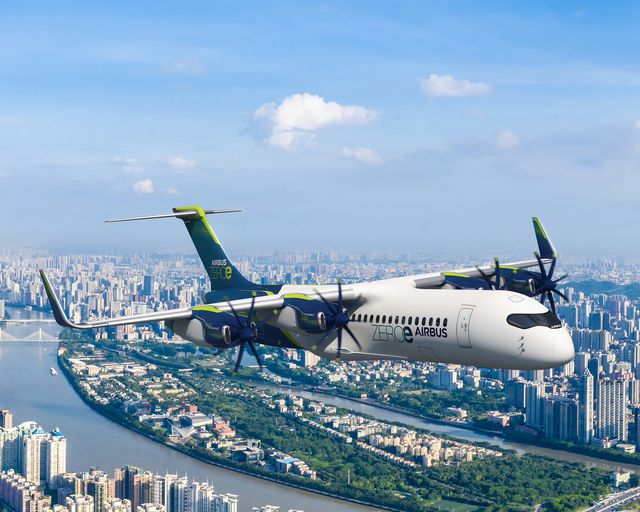
Our hydrogen-powered aircraft
FULLY ELECTRIC
Our ZEROe aircraft will feature an electric propeller propulsion system powered by hydrogen fuel cells, which transform the hydrogen into electricity through a chemical reaction. The only byproduct of this reaction will be water, meaning the process will be almost carbon-neutral as long as the hydrogen is made using renewable energy. There will be four propellers, each powered by its own fuel cell stack.
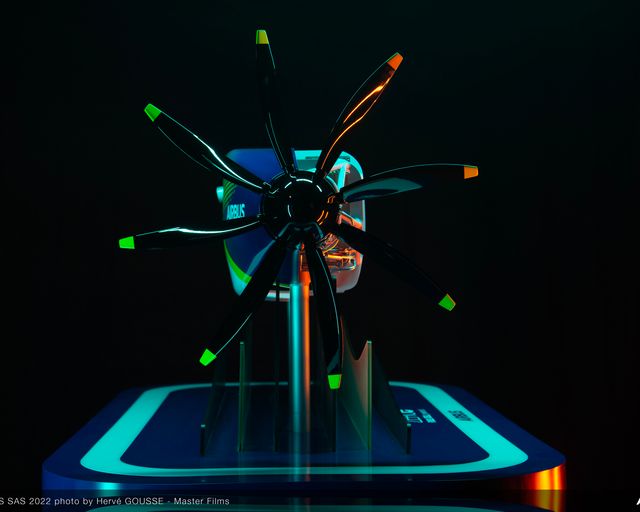
Hydrogen fuel cell technology
POWERING THE FUTURE
While hydrogen fuel cells are not a new technology, there are none commercially available that are large enough to power an aircraft while remaining at an acceptable weight for flight. To accelerate the development of a fuel cell that would respect aerospace weight and safety regulations, Airbus founded a joint venture with ElringKlinger in 2020 called Aerostack. In 2023, the fuel cell demonstrator completed a successful testing campaign and was powered on at 1.2 megawatts.
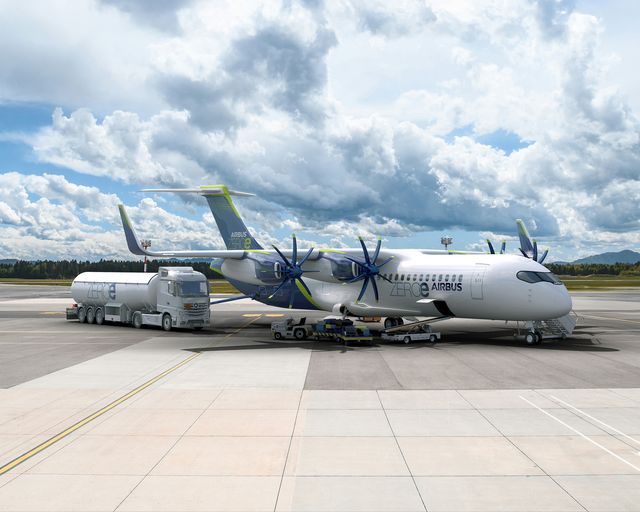
Developing a global hydrogen ecosystem
INDUSTRY COLLABORATION
The Airbus Hydrogen Hubs at Airports programme aims to promote the expansion of the global hydrogen ecosystem to ensure it can support hydrogen-powered flight. A collaborative initiative, it brings together airlines, airports, industry players, energy providers and technology specialists to address the key questions around producing, storing and distributing hydrogen. The programme currently counts more than 220 airports as partners, in addition to numerous energy providers and airlines.
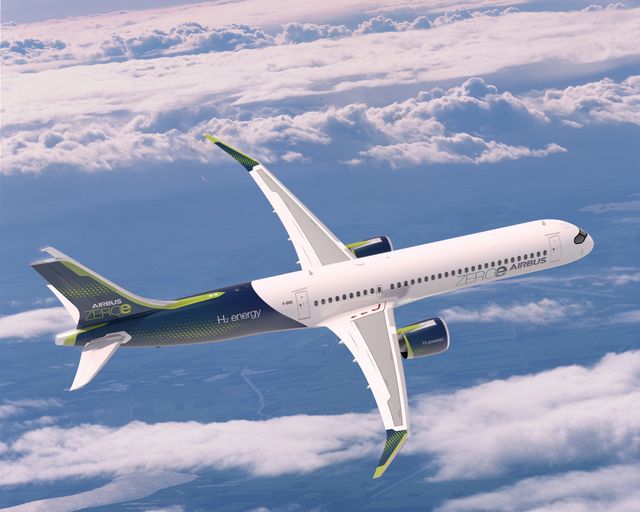
The history of ZEROe development
PREVIOUS CONCEPTS
The ZEROe project was launched in 2020. Before choosing to focus our efforts on the fuel cell-powered ZEROe design in 2025, we also explored the feasibility of three other aircraft designs. All of them were powered by hydrogen combustion propulsion systems: the Turbofan, the Turboprop, and the Blended-Wing Body. Our research into these concepts resulted in valuable insight into hydrogen combustion systems, and we do not rule out further investment into this technology in the future.
Discover Airbus' ZEROe Series
-
 The Countdown to ZEROe: Episode 1: Tanks
The Countdown to ZEROe: Episode 1: Tanks
The Countdown to ZEROe: Episode 1: Tanks
How does an aircraft fly using hydrogen? Whether hydrogen is burned directly or converted into electricity in fuel cells, it first needs to be safely stored at -253°! Find out how our teams in Toulouse, Nantes and Bremen are collaborating to design and manufacture innovative cryogenic storage that will enable hydrogen-powered flight.
-
 The countdown to ZEROe: Episode 2: Fuel Cell Systems
The countdown to ZEROe: Episode 2: Fuel Cell Systems
The countdown to ZEROe: Episode 2: Fuel Cell Systems
The holy grail of aircraft propulsion is to provide power without any emissions. One of the most promising candidates is the hydrogen fuel-cell. Discover how Airbus is developing and testing its fuel cell systems.
For Airbus Summit 2022 M3 -
 The countdown to ZEROe: Episode 3: Fuel Cell Systems Testing
The countdown to ZEROe: Episode 3: Fuel Cell Systems Testing
The countdown to ZEROe: Episode 3: Fuel Cell Systems Testing
Airbus' hydrogen-powered aircraft is taking shape. Last time, we talked about one of the most promising propulsion candidates, which is the hydrogen fuel cell. Discover how Airbus is putting them to the test before flight.
-
 The countdown to ZEROe: Episode 4 : Making the right connection
The countdown to ZEROe: Episode 4 : Making the right connection
The countdown to ZEROe: Episode 4 : Making the right connection
Airbus' hydrogen-powered aircraft is taking shape. Last time, we talked about one of the most promising propulsion candidates. Discover now how Airbus is building the right hydrogen ecosystem all around the world to fuel our future aircraft by 2035.
The latest in ZEROe
In the spotlight
-
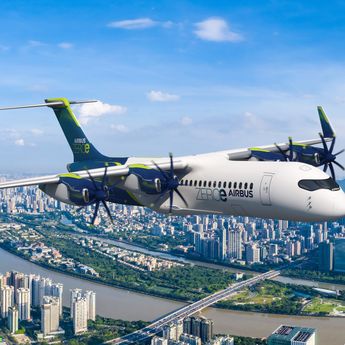 Press releases Innovation
Press releases InnovationAirbus showcases hydrogen aircraft technologies during its 2025 Airbus Summit
During the 2025 Airbus Summit, Airbus provided an update on its roadmap to pioneer the future of commercial aviation in the decades to come, outlining plans to prepare a next-generation single-aisle… -
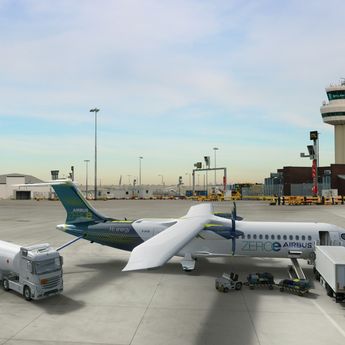 Stories Innovation
Stories InnovationDeveloping a global ecosystem to support hydrogen-powered flight
-
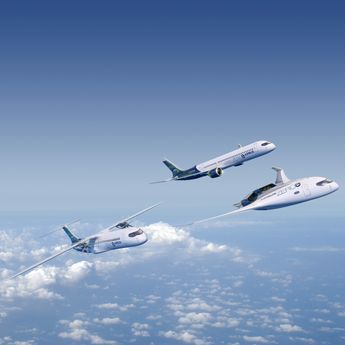 Press releases Innovation
Press releases InnovationAirbus partners with Avolon to explore future of hydrogen aviation
-
 Press releases Innovation
Press releases InnovationAirbus welcomes London Gatwick to global hydrogen hub network
-
 Press releases Company
Press releases CompanyAirbus, Aena, Air Nostrum, Iberia, Exolum and Repsol join forces to study the…
